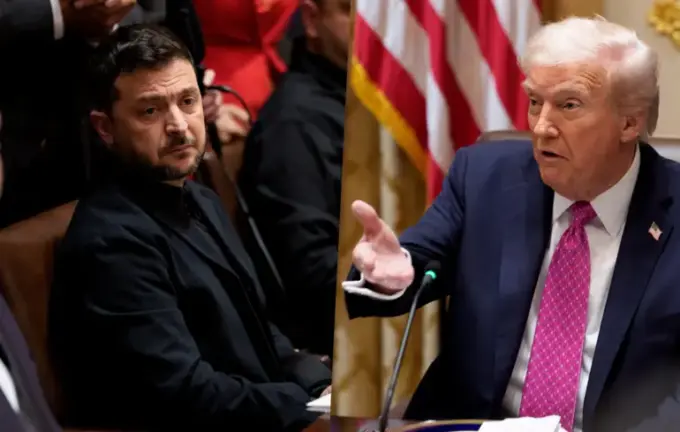Zelensky and Trump: Imperfect Partnership in a Critical Time for Ukraine

Last week, Ukrainian President Volodymyr Zelensky aimed to leverage the potential improvement in relations with US President Donald Trump to secure vital military advantages.
Specifically, his focus was on obtaining American Tomahawk cruise missiles, which Kyiv believes could potentially change the course of the war and deliver a decisive blow to Moscow’s military economy.
It was expected that, following successful mediation in establishing a ceasefire in Gaza, Trump would be inclined to support Ukraine by providing the necessary weapons and strengthen his position vis-à-vis Russian President Vladimir Putin, pushing him to take negotiations seriously.
However, reality proved otherwise — Zelensky and Trump’s meeting at the White House was cordial but yielded no significant breakthroughs.
According to Politico Europe opinion editor Jamie Dettmers, their conversation took place in a polite environment devoid of conflicts or harsh exchanges, unlike previous confrontations.
Zelensky, having learned from past experiences, now understands that during interactions with Trump, showing respect and strategic patience is essential.
Nevertheless, experts argue that the meeting was a victim of poor timing and inflated expectations, as Ukraine hurried to secure this crucial missile aid while Washington remained cautious amid political and military uncertainties.
Notably, just before the meeting, Trump had a phone call with Putin where he jokingly hinted at the possibility of providing Ukraine with Tomahawk missiles, fueling expectations for a subsequent summit in Budapest.
Sources suggest that if Ukraine had factored in that conversation and lowered its expectations, the outcome could have been more productive.
US President Trump remains cautious about approving the transfer of Tomahawk missiles due to concerns over escalation and political risks, especially regarding the use of frozen Russian assets for Ukraine’s defense.
At the same time, tensions are rising in Washington over the division of Russian assets; Japan and G7 European countries are pushing for increased US and Japan involvement, fearing that assets totaling $140 billion stored across Europe could undermine global confidence in the euro.
If Washington and Tokyo adopt similar measures, those concerns could be alleviated.
Moreover, a large Ukrainian delegation, including officials like Andriy Yermak and Prime Minister Julia Sviridenko, visited Washington before the White House talks.
Their efforts to secure agreements with US defense and energy firms failed to materialize into concrete deals, primarily due to poor timing and issues tied to survival-focused political priorities in the US.
Experts note that the emphasis on Tomahawk overshadowed other critical aid needs, such as air-to-air missile supplies for F-16 and MiG aircraft, as well as Patriot air defense systems crucial for countering drone and ballistic missile attacks.
Finally, the ongoing internal US political discord over government funding and the focus on the Middle East further complicated the process.
Overall, the relationship between Trump and Zelensky remains complex and tense, which hampers Ukraine’s chances to obtain all the necessary support for effective resistance against Russian aggression.

